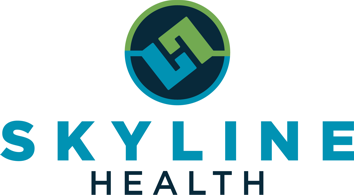Health Equity Strategic Plan
Skyline Health has a core responsibility to serve our entire community to the best of its ability and we take this role very seriously. We acknowledge inequities exist within health care and are due in part to structural racism and classism. The impact of these inequities has intensified as our country experiences the COVID-19 pandemic. The current social justice movement provides an even greater context for Skyline Health to address how unequal opportunities, racial inequity and individual biases create barriers to care.
With this in mind, Skyline Health chose to focus organizational efforts on “health equity” beginning the spring of 2019. Health equity means all people have access to a healthy environment, community and relationship with the places they seek care. Health equity exists when race, place, income and other social factors do not affect health outcomes for any particular group of people.
Skyline Health has set the following goal and series of action steps for 2020/2021. We believe a strategic approach is necessary to build more equitable health care in our community. Skyline Health realizes this is just the start of a long process in which intentional and authentic actions will lead to long-lasting change.
By the end of December 2021, Skyline Health will demonstrate an organization-wide shared understanding of health equity enabling us to develop and launch system-wide diversity, equity and inclusion (DEI) initiatives.
Action Steps:
- Completed January 2020: Conducted an internal equity assessment. This gave us a starting point for our DEI work and started the conversation around inequities within our organization.
- Completed February 2020: Presented findings from Health Equity Assessment to leadership.
Present Health Equity 101 at Foundation Board retreat. - Offer Skyline Health employees training on DEI principles and the way this affects our work.
- Identify staff who are interested in equity work to be champions for the desired improvements.
- Work with data specialists to learn how demographic information can be used to address health inequities.
How will we know the change we make will result in improvement?
- 75 percent of staff, including leadership, can demonstrate a basic understanding of DEI principles and how this applies to their work at Skyline Health, as well as a better understanding of the demographics of Klickitat County.
- Skyline Health will form an Equity Committee, which will continue to move equity work forward and establish ongoing objectives for the organization.
- Skyline Health will create a data collection plan, which will support our ability to meet the needs of underserved communities.
In addition to our own internal work, Skyline Health is committed to promoting health equity at the community level through the following steps:
- In collaboration with other local service providers, Skyline Health is developing a Community Advisory Council (CAC). The CAC will prioritize the voices of those whose lived experiences can help reshape systems and policies. Members will be representative of the communities we serve. The CAC will provide input about needs, barriers to service, tactics to reduce barriers and make decisions concerning program priorities.
- Skyline Health is a member of two local groups working on solutions to address health equity. We are partnering with the Southwest Washington Accountable Community of Health and the Columbia Gorge Regional Health Equity Collaborative to develop and prioritize efforts to improve all levels of the care delivery system.
- Skyline Health is working in partnership with Klickitat Valley Health to create a shared vision for health equity in Klickitat County.
